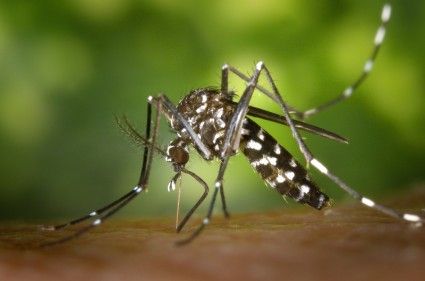 Of all the pests that transmit diseases, very few are as dangerous as mosquitoes. A swarm of these winged bugs can make your home practically unlivable, and that is why it is so important to be proactive about pest control. Here are a few steps that you can take to keep mosquitoes and other unwanted insects off your property.
Of all the pests that transmit diseases, very few are as dangerous as mosquitoes. A swarm of these winged bugs can make your home practically unlivable, and that is why it is so important to be proactive about pest control. Here are a few steps that you can take to keep mosquitoes and other unwanted insects off your property.
Properly Landscape Your Yards
Different plants on your property might release natural aromas that attract mosquitoes at various times of the year. Almost any flower or tree that produces nectar could be a problem, but you should be especially wary of overgrown foliage that gives mosquitoes a place to lay their eggs. Piles of dead branches and tufts of overgrown grass might harbor millions of mosquito eggs.
Eliminate All Standing Water
Out in the wild, mosquitoes typically drop their eggs in small ponds and waterholes. In a suburban setting, they often seek out old buckets, plastic bins, trashcans, and other items that regularly fill up with water. At least twice a week, you should inspect your entire property for any standing water that the mosquitoes can use to hydrate themselves and lay eggs.
Use a Natural Repellent
For many homeowners, the most effective organic mosquito control will be a natural repellent spray made from essential oils. These insects are often repelled by stronger odors from cedar and peppermint oil. Even if the product claims that it is non-toxic, you should still keep young children and pets out of the area for an hour or two. In stronger doses, some of those natural ingredients might irritate the eyes or cause rashes.
Replace Your Outdoor Lights
Bug zapper lights are a great way to passively get rid of mosquitoes. Many bug-zapping lights even have multiple settings so that they only attract and kill mosquitoes at certain times. If you notice that mosquitoes congregate in certain areas of your property, then you should install a few bug zappers to thin out the swarm.
In addition to being an unpleasant problem, mosquitoes can also be dangerous. These insects often carry millions of germs, and you must constantly be on the lookout for new ways to prevent an infestation.

